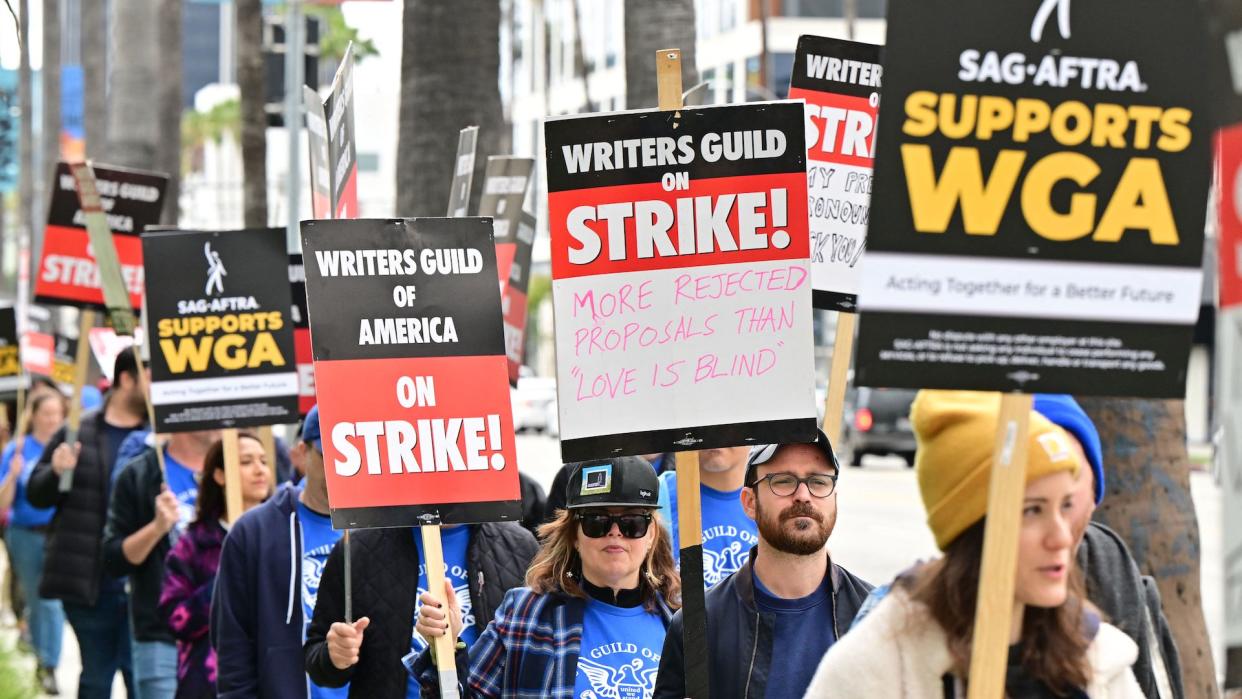Indie Film Shutdown Looms as Insurers Grow Wary of SAG Strike Risk

A month away from the June 30 expiration of SAG-AFTRA’s collective bargaining agreement with the AMPTP, indie films are in a panic.
With SAG’s negotiating committee calling for a strike authorization vote, producers are stuck in an infinite loop of existential crisis. They’re toggling between a scramble to get cameras rolling, make minute-to-minute decisions about continuing prep work, or making the call to push start dates until — fingers crossed — a strike is averted.
More from IndieWire
“I’m on an emergency call almost every day about whether to push a movie, whether to keep spending money and see what happens,” one entertainment lawyer told IndieWire. “Independently financed movies, it’s very hard. These are real people putting in real money. It’s not like a studio isn’t real money, but it’s different kinds of risks.”
For indie films, those risks requires that financing be secured by completion guarantors and they aren’t interested in waiting to see what happens at the end of June. The entertainment lawyer said that within the first few days of Cannes, at least six different European productions were put on hold because bond companies were afraid to take the risks associated with a work stoppage. Another sales agent out of Cannes said he met with a financier who felt he had “the last bonded project,” which would start this week and conclude just before the current contract expires.
Deadline reported that “The Island,” the latest film from Pawel Pawlikowski (“Cold War”) starring Joaquin Phoenix and Rooney Mara, was on hold because it couldn’t secure a completion bond. An individual with knowledge of the production confirmed to IndieWire that it was on hold, but would-be guarantor Film Finances Inc. did not return IndieWire’s requests for comment.
A film finance executive explained that if a company like Film Finances, the largest guarantor in the industry, is worried, so is everyone else. Almost any indie movie with a pending bond is likely run into the same issue. Many of the projects have locked scripts, but it’s the threat of a DGA or SAG work stoppage that needs clarity. If you’re not starting principal photography right now, few financiers want to risk being shut down midway through production.
“If you have a shoot that goes beyond the June 30 deadline or even close, you’re not going to be able to get a bond. It’s as simple as that,” the sales agent said. “There’s just no practical way.”
At its most basic level, the completion bond ensures a film can be delivered to a distributor and that loans are repaid. The bond company also vets a film’s budget to make sure it’s sufficient to pay back all costs and will build in a contingency, roughly 10 percent of the overall budget, in case anything goes wrong before the bond company is on the hook for costs. Studios don’t have these problems, unless a film is independently financed; the studio manages those concerns in house.
Completion bonds are like earthquake insurance: It’s expensive, and the odds of using it are very slim, but not to have that protection against a budget over a few million dollars is to court catastrophe. Terry Gilliam’s “The Adventures of Baron Munchausen” (1988) had its bond called in and was taken over by Film Finances after the budget ballooned by over $20 million. “Highlander II: The Quickening” (1991) also had a bond called when it went $10 million over budget.
An infamous example of a film without a bond was David O. Russell’s 2008 production “Nailed,” which was financed by the troubled Capitol Films. After IATSE shut down the film multiple times over unpaid crew, Russell and producers Doug Wick and Lucy Fisher left the production and Capitol went into bankruptcy in 2010. It was released in 2015 under the title “Accidental Love” with a directorial pseudonym, Stephen Greene.
As a second lawyer explained, a strike can be considered a force majeure and won’t be excluded as a risk — but while it might delay a film’s delivery date, the bond company would still be on the hook for any shutdown costs.
One boutique film bond guarantor who spoke to IndieWire said his company granted bonds for projects that are starting imminently, and even ones with wrap dates after the SAG contract’s expiration. Some producers, the guarantor said, are willing to take the risk even with the high costs (and, the associated insurance premiums).
While American producers have been preparing for a work stoppage for some time, the first entertainment lawyer suspected that European producers — like those for “The Island” — have been caught off guard.
“It is shocking, but that’s what’s happening,” the lawyer said. “If you’re the financier and you have to pay for prep and your bond’s about to close, everything’s fine, and then suddenly this happens, a lot of people are losing a lot of the money they were paying on prep.”
There is the outside possibility, however unlikely, that an independent production could convince SAG to provide a strike waiver, much as the Tony Awards negotiated with the WGA. Very small independent projects unaffiliated with the AMPTP can also attempt to make an interim agreement with SAG, in which companies agree to terms different than the existing agreement. A rep for SAG-AFTRA did not respond to a request for comment.
“We’ve been through these periods before and we’ve bonded many films that have been threatened with strikes or during strikes, some bonded with the guilds themselves,” the guarantor said. “It doesn’t mean every independent film is going to be shut down, but it certainly creates havoc in the industry.”
Best of IndieWire
Sign up for Indiewire's Newsletter. For the latest news, follow us on Facebook, Twitter, and Instagram.

